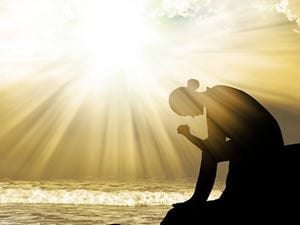
There is a certain ease in the unexamined life. We get to lie upon the sofa of our lives, smelling the rich odor of roses as it drifts through an open window on untainted, summer air. We do not bother to get up, because we’re aware, at some level, that if we were to do so, we would have to engage muscles grown painful and stiff from disuse. If we were to focus, we might notice that the roses are dying. If we were to engage our senses, we might see that it is not summer, but winter that is come.
The Greek philosopher Socrates is often attributed as having proclaimed that “The Unexamined life is not worth living,” when put to trial concerning his trial for “corrupting the youth”. And indeed, For Socrates, the unexamined life was a fate worse than death, as he eventually allowed himself to be executed rather than cease his efforts toward teaching people to think for themselves—questioning the gods, the state, and the very essence of the self.
The trial of Socrates illustrates the cost of the examined life. Metaphorically, if we wish to rise from the sofa and see the world as it really is, we must die to our ignorance. This is a painful process. It results in loss. It creates change.
But in pain there is motivation. In loss there is change. And in change, there is renewal. Rather than stagnating, rather than waking in the night with a lingering sense that something is wrong, we can take control of our lives and choose our own paths, rather than have them chosen for us. We should not inherit our world views from others. We should hammer them into shape upon the anvil of our wills.
One of the most common areas of our lives that we inherit rather than examining is religious belief.
Are your parents Christian fundamentalists? Are they Rastafarian, devoted Muslims, virtuous Buddhists or nominal Catholics?
Whatever faith they are, it’s quite likely that you’ve unconsciously inherited a large set of presuppositions from them—we’re living in a story we didn’t get the chance to write.
Each of the aforementioned belief systems comes with assumptions about the world, about what does and does not constitute reality, and about what we believe is possible. And all of these assumptions guide our actions.
So why not take control of that which guides you? Why not seek the truth and arrive at your own destination?
The first step to choosing your faith is the realization that you have inherited a set of assumptions. If you’ve read this far, you’ve begun the process. Think about what you believe and why you believe it.
Here are some good questions to get you started.
Is there a god and what is its nature?
What is the origin of humankind?
What happens to humans after death?
What is the nature of the universe?
From where does knowledge come?
What is the basis for morality?
What is my purpose?
Don’t rely on what you already know. Start reading the foundational texts of different faiths with an open mind—remain aware of your own preexisting presuppositions.
Ask yourself the aforementioned questions as you read. Which faiths give you the most satisfactory answers? Which feel closest to Truth with a capital T—the way things really are? Which set of beliefs seem to set a satisfactory definition of what is good, and which best create that good for all humankind?
Remember that the contemporary practitioners of a given faith have often fallen far from the founders of that faith. Just because you see hypocritical Christians at work in the world does not mean that Christianity is inherently hypocritical. Look to the example of Jesus, and you’ll see what a Christian truly is. Don’t assume that Islam is the religion of terrorists. Read up on the life of Muhammad, and you’ll find that he would have never justified wanton violence—his sword was raised only in self-defense. Study the roots to know the true nature of a belief system.
Eventually, you’ll find yourself drawn to a certain faith—don’t give in to the notion that you cannot choose because all are equally valid. Remember—you can treat people of all faiths as equally valuable, while choosing one faith that is uniquely valuable to you.
This journey is not fast, nor should it be. It is the slow process of dismantling old ways of thought and learning how to build your own internal structures. But when you finally feel that you’re edging toward the truth, and the best way of seeing and interacting with the world, it’s a wonderful feeling.
When you work out your own faith in this way, it will be more deeply held, sincere, and lived out than the faith of someone who has never stopped to consider why they believe what they believe. Even if, in the end, you do choose the same religion that was handed down to you, you’ll come into what might be called a second faith—a stronger, better version of your first.
But keep in mind that this journey never ends. The habit of being aware of, and thinking through, your beliefs should last a lifetime. Don’t be afraid to question—a good belief system will withstand such thought.
Know, also, that you will never have all the answers. Some things, we simply cannot know for sure, and the knowledge of what we do not know is the beginnings of wisdom.
But that is the great mystery of it! Faith gives us a window into the exciting unknown, giving us hope of something more beautiful, more perfect, more real, than what we know.
All of us, as C.S. Lewis wrote, have in us a desire that nothing of this world can satisfy. The only explanation, perhaps, is that we were made for another world than this.
Know thyself.

